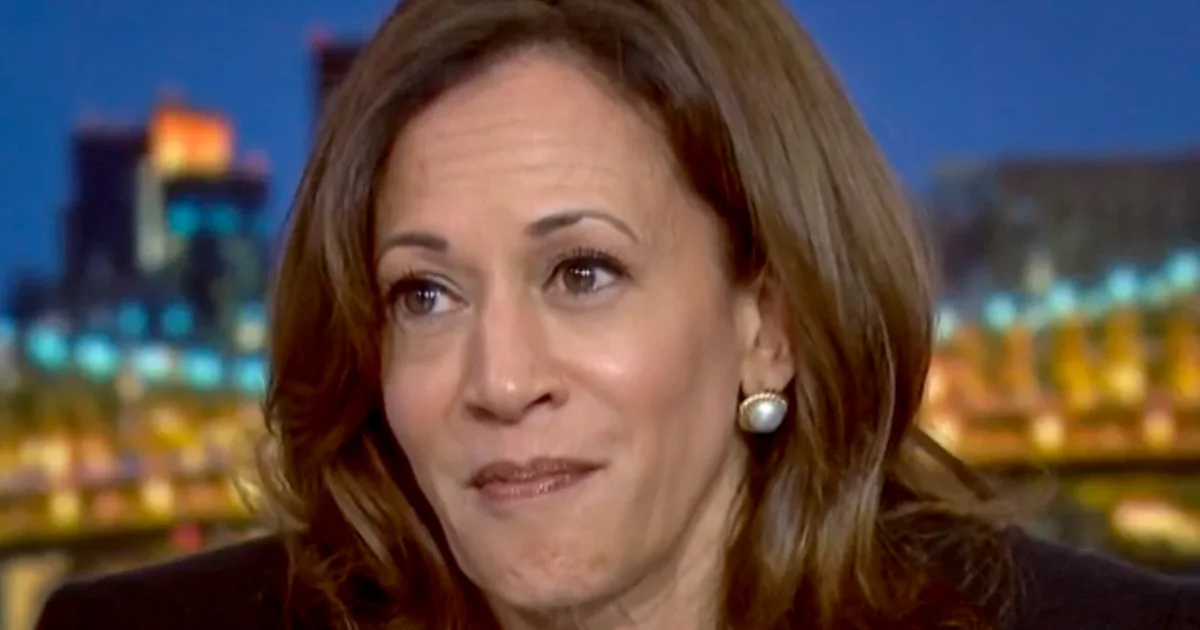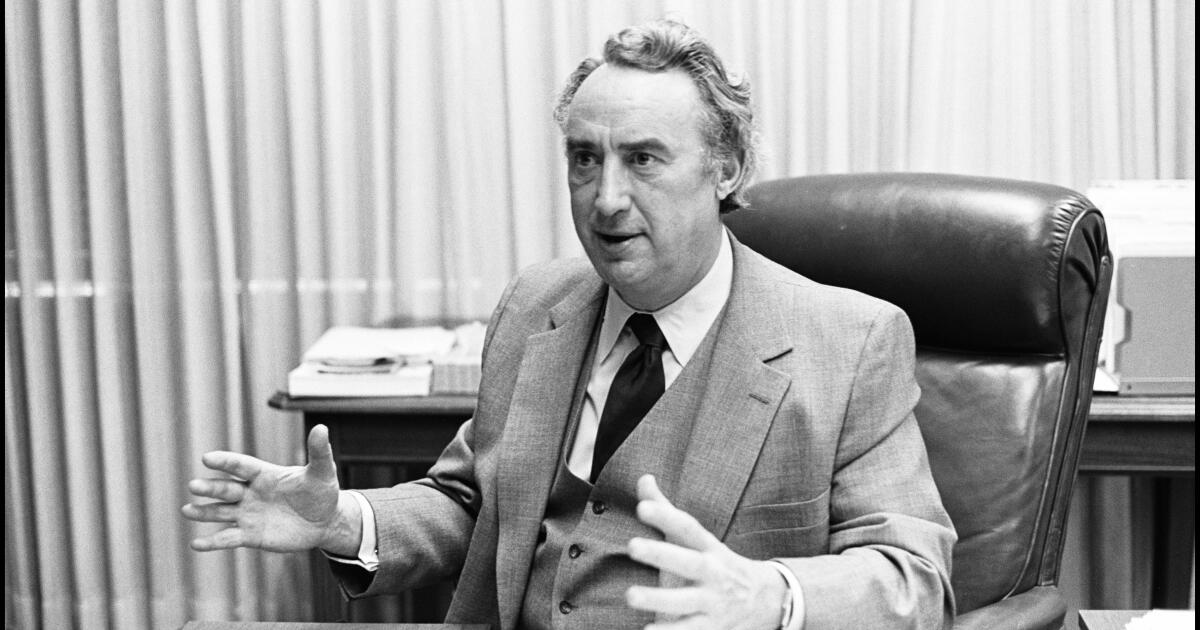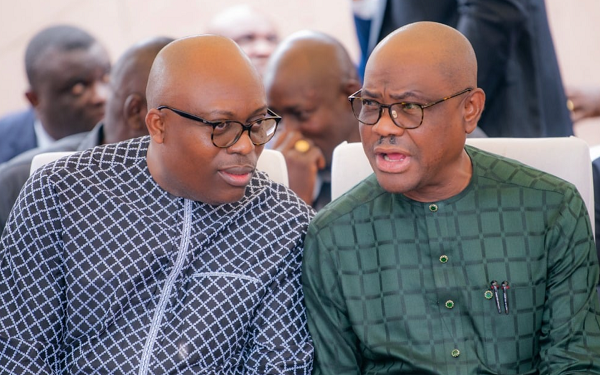
The image that will remain with me long after reading Vice President Kamala Harris’ new book, “107 Days,” written with the help of the Pulitzer-Prize winning author Geraldine Brooks, is the description of her trusted social secretary painstakingly peeling the frosting off election-night cupcakes that spelled out the words, “Madame President.”
“It says a lot about how traumatized we both were by what happened that night that Doug and I never discussed it with each other until I sat down to write this book,” Harris writes.
Putting her story on paper may have provided a catharsis for Harris, but less so for readers, especially those who were pulling for her victory. To be honest, it’s hard to feel anything close to closure when her defeat was the beginning of such a dispiriting and destructive chapter in American politics.
A best-selling book and a sold-out book tour won’t lead her down a path strewn with roses and confetti. She knows that, and she marched forward anyway with the ultimate look inside a campaign compressed by time, questions of loyalties, rhetorical missteps and America’s persistent uncertainly about accepting a woman in the nation’s highest office.
This is not a woulda-coulda-shoulda explanation of a failed campaign. Harris is confident on the page, describing herself as a joyful warrior who claimed to be ready from the moment Joe Biden made that fateful July call to tell her he was exiting the race. And yet she does address and own up to strategic and rhetorical mistakes, including the explanation for why she never appeared on Joe Rogan’s podcast (she actually wanted to do it, she writes).
Or, why she could not find the right words to counter the ads claiming that “Kamala is for they/them, President Trump is for You.”
Of her appearance on “The View” 28 days before the election, Harris writes: “Everything was going well. Until it wasn’t.”
With a largely female daytime audience, “The View” was supposed to be comfy-cozy terrain. Co-host Sunny Hostin recalled on air a moment Biden had appeared on the show and said there was not a single thing that he did that his vice president could not do. That would normally be the preamble to a home run, a fat pitch over the plate.
Hostin asked, “What do you think would be the biggest specific difference between your presidency and the Biden presidency?” Harris was predictably cautious in talking about their “shared life experiences.”
But the follow-up tripped her up. “If anything, would you have done something differently than President Biden during the past four years?”
Harris notes that she had prepped for that question and had notes on it and had addressed that issue from a slightly different angle during a debate. Yet on that morning, with the election less than a month away, she said, “There is not a thing that comes to mind.”
“I had no idea I’d just pulled the pin on a hand grenade,” she said. “I wasn’t braced for the explosion that was coming.”
That fat pitch over the plate instead went to Donald Trump, who used that statement on repeat in campaign ads shackling her to Biden’s sinking popularity and Trump’s “sleepy Joe” portrayal of him as enfeeble and ineffective.
“Why. Didn’t. I. Separate. Myself. From. Joe. Biden?” Harris asks in her book, that exact punctuation included to underscore her frustration with realizing after the fact that people needed to see a separation between the two of them. The answer on the page comes down to a cocktail of caution, loyalty and a zone of trust.
That’s in stark contrast to cautions from campaign advisor David Plouffe, who, Harris writes, repeatedly told her, “People hate Joe Biden.” Now hate may be a hyperbolic word, but Plouffe was clearly trying to give her permission to go her own way and to distance herself from an unpopular president. Her loyalty prevented that then and her loyalty is still persistent in the pages of her book.
In “107 Days,” some of the roughest jabs at Biden are placed in quotations from other people instead of Harris herself.
She writes of when her husband, Doug Emhoff, for instance, fumed when summoned to meet with Jill Biden during a July Fourth celebration and Jill asked if he and Harris were duly supportive of the Bidens.
“They hide you away for four years, give you impossible, s— jobs, don’t correct the record when those tasks are mischaracterized, never fight back when you’re attacked, never praise your accomplishments, and now, finally, they want you out there on that balcony, standing right beside them,” Emhoff said. “Now, finally, they know you are an asset, and they need you to reassure the American people.”
One of the most candid insights into Harris’ complicated relationship with Biden and her team comes early on in the book when Harris explains the tensions around her rising popularity as she was traveling the country speaking out about the Dobbs decision and the humanitarian crisis in Gaza after she had been pivoted away from an early assignment to focus on the border.
Harris had delivered remarks at the Edmund Pettus Bridge in Selma, Alabama, where civil rights marchers were brutally attacked in 1965. She used the occasion to deliver carefully calibrated remarks that expressed support for Israel while calling for increased aid to Palestinians and the demand that Hamas release hostages. The remarks had been approved and vetted. But when they went viral, Biden’s team was displeased.
Harris writes: “Their thinking was zero-sum: If she’s shining, he dimmed. None of them grasped that if I did well, he did well. That given concerns about his age, my visible success as his vice president was vital,” she wrote. “His team didn’t get it.”
A lot of women who read those words will feel that deep in their bones. Because while people might be loath to admit it, ambition in a woman is too often viewed with a combination of ambivalence and disdain. Ambition can be interpreted as undue aspiration and when that happens, the math in that zero sum game never works. When a woman is expected to dim her light to make others feel more comfortable, it’s not just the woman who loses. The same holds true when she has to downplay her story — or her justifiable anger.
Harris does not dwell in the book on the role of gender in her failed campaign, but she does share some telling moments. Like when Angela Merkel, ever the stickler for keeping to time, extended a meeting so she could have a private moment with Harris to offer key advice: “Don’t ever let them make you cry.”
That is slightly, yet significantly, different than the standard advice of don’t ever let them see you cry. Merkel was calling for something tougher.
Charlamagne tha God, the host of the popular morning radio show “The Breakfast Club,” told her: “You come off very scripted. You stick to your talking points.” Harris shot back: “That would be called discipline.”
“The double standard on our style of presentation was galling. If I hesitated or backtracked midsentence to clarify or better express a thought, it was ‘word salad,’” she wrote. “Meanwhile Trump could describe Hurricane Florence as ‘one of the wettest we’ve ever seen, from the standpoint of water.’”
The structure of the book is a day-by-day diary. The chapters are often short, some just a page or two.
The countdown structure makes for a breezy read while revealing the strange inner workings of a campaign, Harris’ sense of humor, and her occasional penchant for profanity. When Trump questions whether she is really Black while speaking to the National Association of Black Journalists, her campaign staff suggests that Harris respond by delivering a treatise on race, much like Barack Obama did in the run-up to his first campaign.
Her chosen response: “Are you f—— kidding me?”
“I was not about to take Trump’s bait. He lies all the time,” Harris writes. “He throws out outrageous statements to distract from real issues. Today he wants me to prove my race. What next? He’ll say I’m not a woman and I’ll need to show my vagina?”
That was the end of that discussion.
There is a popular structure in films and TV shows these days where the story begins with an explosive event and then works backward to explain how the characters got to that charged moment. That’s pretty much the structure of “107 Days.” We know how the story ends. We are living with it every day as Trump smashes norms and disrupts our democracy. The challenge for Harris is to explain in a cogent and compelling way how we got there, in 300 pages.
But since this is a political book, the additional expectation is that it also provide some measure of a blueprint for going forward. Harris provides that in an afterword, where her voice on the page most closely matches the firebrand that we heard on the campaign trail.
Harris would have been the first American woman to earn the title that was scrapped off the frosting from the cupcakes on election night. She should be commended for deciding to tell her story and attempt to take control of the narrative around a jagged tear in the through line of American democracy.
Her book is not an atta-gal playbook for the next woman to seek that title. Nor does it suggest that she is going to jump back into electoral politics. “In this critical moment, working within the system by itself is not proving to be enough,” she writes.
Harris has said she tried hard not write an “I told you so” book. But she did tell us. Clearly. Repeatedly. Eloquently. Urgently. Her book is required reading for anyone who wants to better understand the most consequential election of our lifetime that was won not by a mandate but by one of the closet margins in a century.



